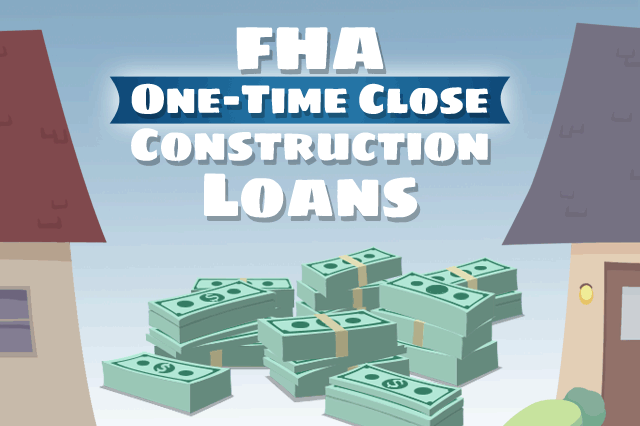The Difference Between Construction Loans and Rehab Loans


But what is the difference between an FHA construction loan and an FHA Rehab loan?
There are many differences. The construction loan is designed to address the needs of a borrower who wants to buy the land (or provide it) and have a house built according to the plans the borrower provides. That means that the loan must accommodate not only the finished home, but the supplies, labor, inspections and other details.
Funds are paid out of escrow to the builders and other professionals needed to complete the job and the borrower takes possession of the home when the project is deemed complete.
Borrowers have the option to apply for a traditional construction loan that requires not one, but two applications and closing dates (one for the labor and materials, etc. and one for the finished home). But the simpler FHA One-Time Close construction loan eliminates the need for a second application and closing date.
FHA Rehabilitation loans work in a similar manner in some respects-the borrower must use FHA approved builders in both cases, there are FHA requirements that must be followed so that the finished home meets minimum standards, and FHA rehab loans require the use of escrow the same as an FHA construction loan.
But FHA rehabilitation loans allow the borrower to purchase an existing property that needs to be repaired or refinance the borrower’s current mortgage. FHA rehabilitation loans don’t feature work done from the ground up, but rather serves to facilitate work to be done on existing structures or to add to them.
The basic general difference between an FHA rehab loan and an FHA One-Time Close construction loan is that the purpose of the loan drives the type of loan you should apply for. Remodeling, renovation, or improvement on a property is possible with a rehab loan, but only construction work from the ground up is possible with a One-Time Close mortgage.
Borrowers should be prepared for certain restrictions on the use of FHA loan funds for projects depending on the nature of your loan.
For example, FHA rehab loans do not allow the addition of luxury features such as a new swimming pool, new barbecue pit, etc. Existing features such as these may be repaired or renovated if there is a safety issue that needs to be addressed, but otherwise you will need to consult your loan officer to see what restrictions apply to a certain kind of repair work.
FHA construction loans may be affected by how quickly the borrower is able to obtain a builder’s permit for the work; in housing markets where permit processing times are much longer than elsewhere, borrowers should be prepared to deal with that contingency.
Want More Information About One-Time Close Loans?
We have done extensive research on the FHA (Federal Housing Administration), the VA (Department of Veterans Affairs) and the USDA (United States Department of Agriculture) One-Time Close Construction loan programs. We have spoken directly to licensed lenders that originate these residential loan types in most states and each company has supplied us the guidelines for their products. We can connect you with mortgage loan officers who work for lenders that know the product well and have consistently provided quality service. If you are interested in being contacted by a licensed lender in your area, please send responses to the questions below. All information is treated confidentially.
FHA.com provides information and connects consumers to qualified One-Time Close lenders in an effort to raise awareness about this loan product and to help consumers receive higher quality service. We are not paid for endorsing or recommending the lenders or loan originators and do not otherwise benefit from doing so. Consumers should shop for mortgage services and compare their options before agreeing to proceed.
Please note that investor guidelines for the FHA, VA, and USDA One-Time Close Construction Program only allow
Your email to [email protected] authorizes FHA.com to share your personal information with a mortgage lender licensed in your area to contact you.
- Send your first and last name, e-mail address, and contact telephone number.
- Tell us the city and state of the proposed property.
- Tell us your and/or the Co-borrower’s credit profile: Excellent – (680+), Good - (640-679), Fair – (620-639) or Poor- (Below 620). 620 is the minimum qualifying credit score for this product.
- Are you or your spouse (Co-borrower) eligible veterans? If either of you are eligible veterans, down payments as low as $0 may be available up to the maximum amount your debt-to-income ratio per VA will allow – there are no maximum loan amounts as per VA guidelines. Most lenders will go up to $750,000 and review higher loan amounts on a case by case basis. If not, the FHA down payment is 3.5% up to the maximum FHA lending limit for your county.
------------------------------
RELATED VIDEOS:
Keep Your Eyes on Your Loan Balance
Learn About FHA Loan Prepayments
Taking Out a Home Loan Makes You a Borrower

Do you know what's on your credit report?
Learn what your score means.






